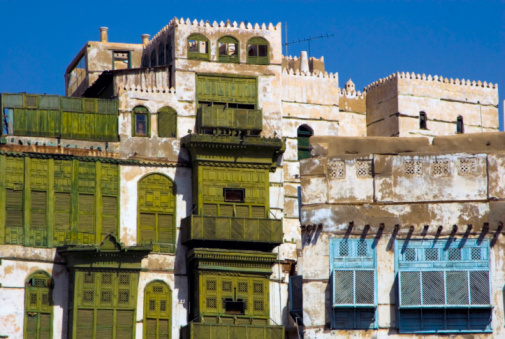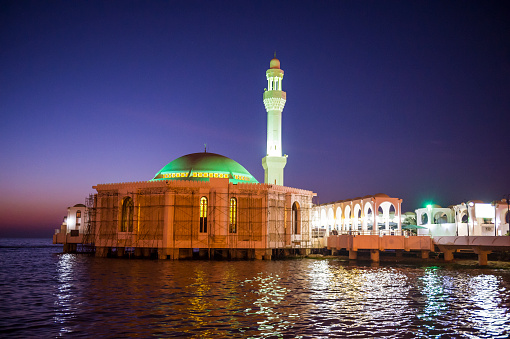HISTORY AND LEGENDS OF THE PORT CITY
Jeddah has a long and fascinating history that dates back to before the birth of Jesus Christ. Legend has it that when Adam and Eve descended onto Earth, Eve chose to descend to Jeddah while Adam picked the Indian subcontinent as his destination. To back this theory, there is a burial site located at central Jeddah, which many believe to be the final resting place of the mother of humanity, but the validity of the claim has yet to be confirmed.
Nevertheless, archeological excavations have revealed 5,000 years of civilization on Jeddah’s land, for instance, Alexander the Great passed through Jeddah sometime between 356 and 323 BC. The famous Arabian Quda’a tribe made Jeddah its home after the Marib Dam in Yemen collapsed in 115 BC. Warriors and knights fought to the death on its coasts, many a brave man lost his life on Jeddah’s lands, from Seljuk, Ayubi and Mamluk soldiers. As one of the jewels of the Red Sea, Jeddah was sought after by many invaders. During the 16th century, the Portuguese attacked the city while Dutch pirates did the same thing during the 17th century.
Qunsah Al-Ghuri, one of the last Burji Mamluk sultans (1446-1501), wanted to protect this jewel so he built a fortress around it. This prevented any Portuguese incursions coming from the Red Sea. Unfortunately, the walls did not protect the city for long as it eventually fell under the rule of the Ottomans. In spite of this, the city stayed fortified until 1947, when the walls were torn down.

CULTURAL SIGNIFICANCE OF JEDDAH
Jeddah has always served and still serves as the passageway to Makkah, as such it was a gate that people of varied civilizations and cultures passed through whenever they went to or left the Holy City. It was also a major vessel in the Middle East as it connected the significant hub states of Egypt and Yemen. There are also several folktales and historical stories that surround the neighborhoods and areas in Jeddah. For example, there’s Al Mazloum neighborhood, which is named after a historical account which asserts that a scholar living Jeddah called Karim El Berzengy was hanged to death by the Ottomans who had accused him of sedition. As such, the neighborhood in the port city was called Al-Mazloum, which is Arabic for the unjustly accused.











